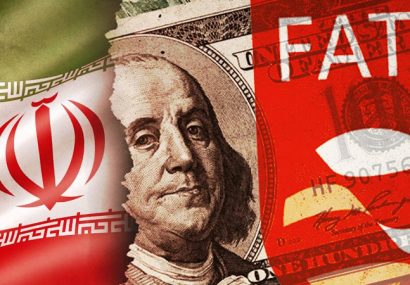Foreign Trade Costs and Investment Attraction Tied to FATF Membership
TEHRAN (Iran News) In a meeting with the Board of Directors and several members of the Iran Chamber, President Masoud Pezeshkian announced that discussions would be revisited regarding the FATF-related bills in the Expediency Council. He expressed hope that joint efforts could facilitate economic activities and ease business operations.
As the Expediency Council begins revisiting the Palermo and CFT bills—final steps for Iran’s adherence to FATF’s conditions—private sector economic leaders continue to stress the importance of joining these international conventions and implementing FATF’s requirements.
Mohammad Reza Bahraman, Vice-President of the Iran Chamber, stated that the continuation of FATF-related restrictions amounts to a form of self-sanctioning, which prevents foreign investment in various sectors, including mining.
Message Baghery, also a Vice-President of the Iran Chamber, noted that to achieve the 8% growth target and objectives set in the 7th development plan, Iran must leverage all opportunities, including joining FATF.
Kadir Qiafah, another Vice-President, added that ratifying FATF would help boost exports, as even strategic partners like Russia and China now express concerns about FATF restrictions in their dealings with Iran.
Keyvan Kashfi, a Board Member of the Iran Chamber, emphasized that removing Iran from FATF’s blacklist would lower trade costs and expressed optimism that a professional review of the FATF bills by the Expediency Council would lead to a positive vote.
Beyond the Board of Directors, leaders of specialized commissions and Chamber heads across Iran have also voiced their support for joining FATF.
Mohammad Khaki, President of the Khoramabad Chamber of Commerce, explained that one of the prerequisites for integrating into the global value chain is the ease of financial transactions, which can only be achieved by complying with FATF standards and global banking norms.
Mustafa Mosavi, President of the Khorramshahr Chamber, stressed that the Expediency Council must prioritize foreign trade development when reviewing FATF bills, as joining FATF is essential for being accepted into the international community.
Khorshid Gozdarazi, President of the Bushehr Chamber, emphasized that the private sector requires banking transactions with various countries, a necessity that can only be fulfilled through Iran’s FATF membership and adherence to international banking standards.
Mahmoud Najafi Arab, President of the Tehran Chamber of Commerce, underscored that Iran’s trade relations and financial transactions depend on joining FATF to improve economic cooperation with global partners.
Mohammad Reza Tavakolizadeh, President of the Mashhad Chamber, stressed that Iran must accept FATF rules to attract foreign investment and address its economic imbalances.
Ali Abdullahian, President of the Ardabil Chamber, expressed that, despite the shortcomings of international organizations, Iran’s economic development requires FATF membership.
Alireza Khameh Zareh, President of the Birjand Chamber, stated that the government must clear obstacles to FATF acceptance, helping Iran escape its current economic and trade isolation. “Foreign Trade”
Mahmoud Oliayi, President of the Iran Chamber’s Corporate Responsibility and Governance Commission, noted that the failure to accept FATF creates immense pressure on businesses and citizens, adding that unnecessary costs should not be imposed on economic actors.
Farshid Shokrkhodai, President of the Investment and Finance Commission, highlighted that joining FATF and connecting with international banks is vital for attracting investment and streamlining the process.
Alireza Kolahi Samadi, President of the Industry Commission, emphasized that if Iran intends to engage in global frameworks like BRICS or any non-dollar-based economic system, FATF membership is a must.
Saeed Tajik, Vice-President of the Standards, Environment, Sustainable Development, and Water Commission, also commented that self-sanctions, alongside international sanctions, are harming the economy, and not joining FATF is a form of such self-sanctioning.
- source : IRAN NEWS ECONOMIC DESK






























